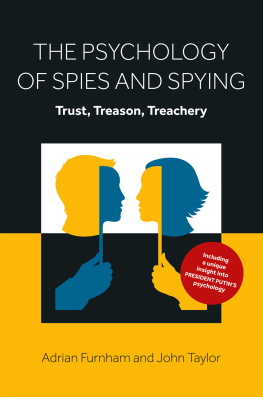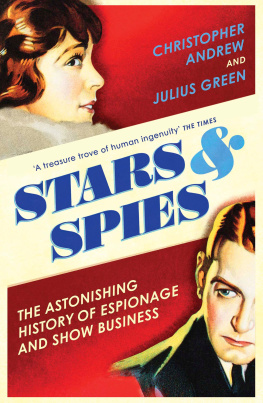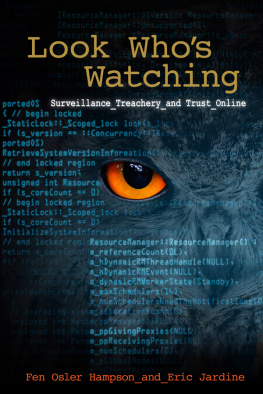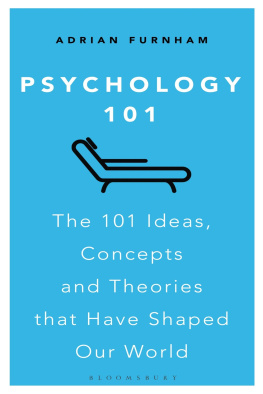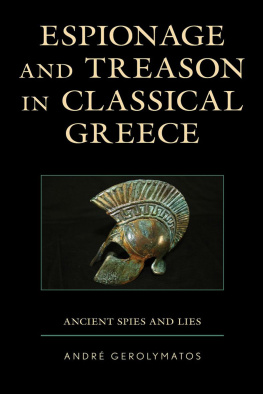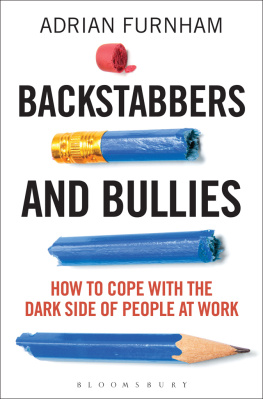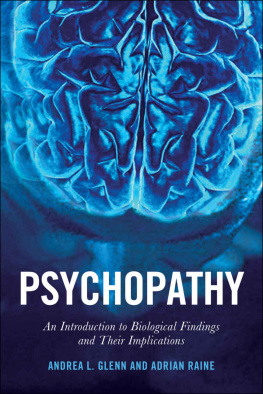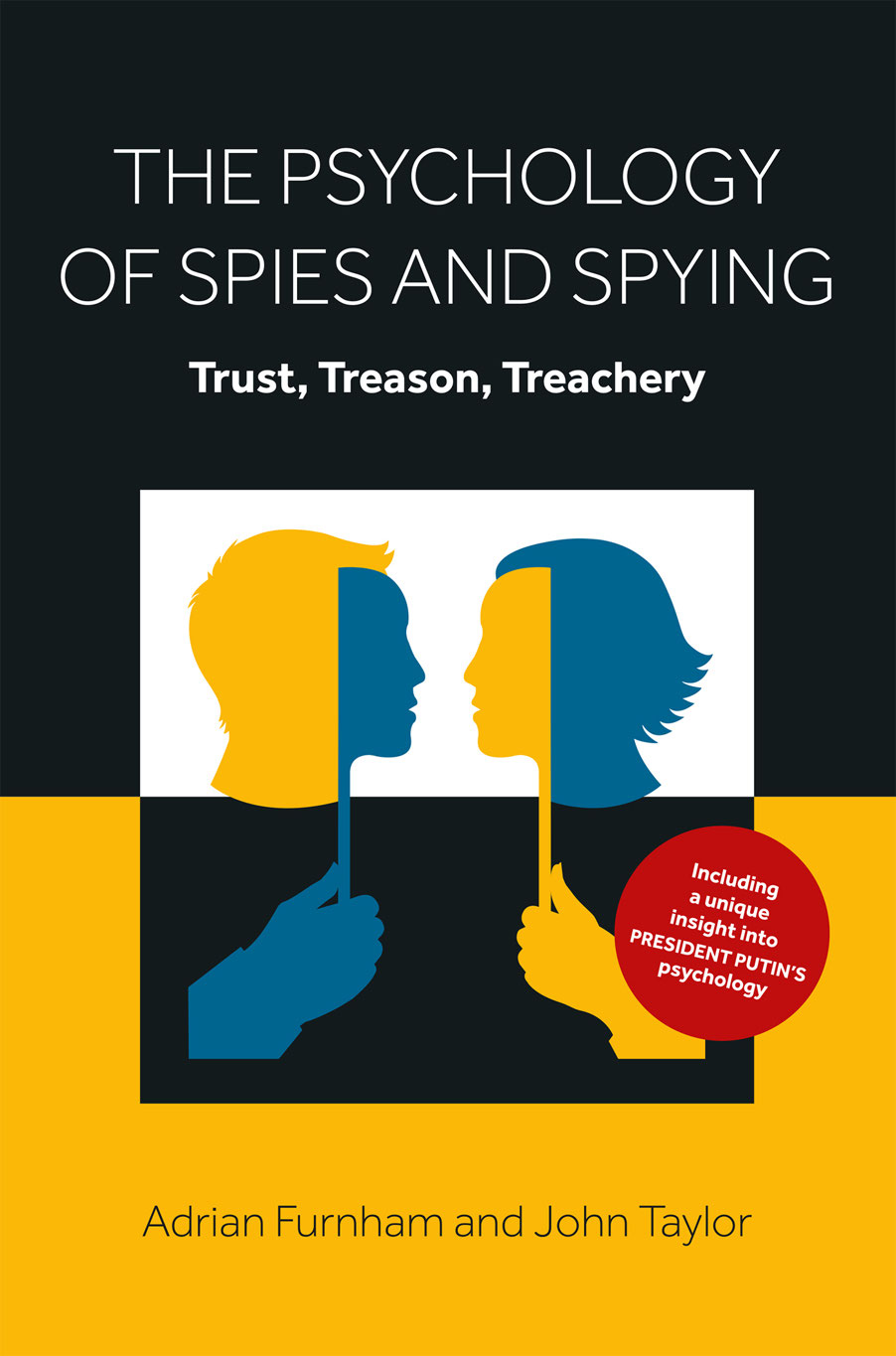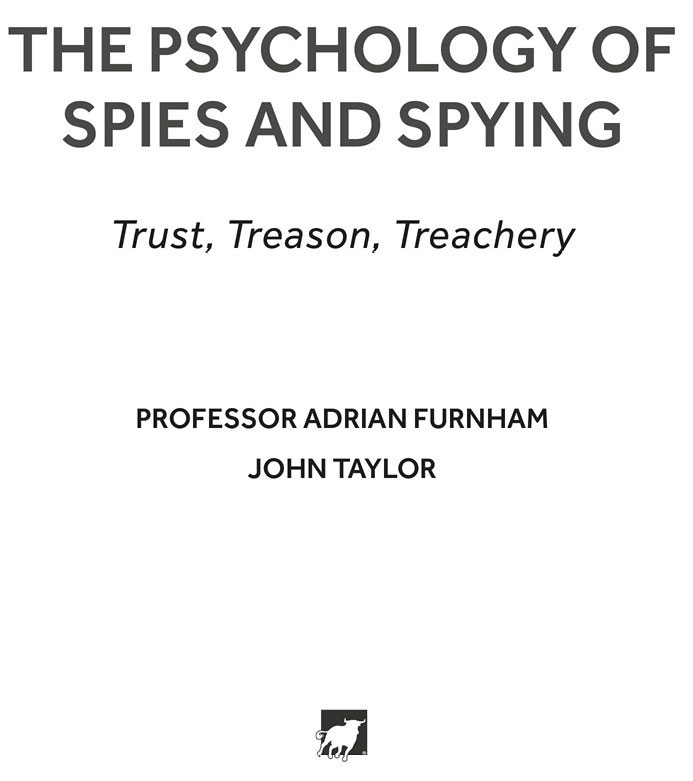Copyright 2022 Adrian Furnham and John Taylor
The moral right of the author has been asserted.
Apart from any fair dealing for the purposes of research or private study, or criticism or review, as permitted under the Copyright, Designs and Patents Act 1988, this publication may only be reproduced, stored or transmitted, in any form or by any means, with the prior permission in writing of the publishers, or in the case of reprographic reproduction in accordance with the terms of licences issued by the Copyright Licensing Agency. Enquiries concerning reproduction outside those terms should be sent to the publishers.
All statements of fact, opinion, or analysis expressed are those of the authors and do not reflect the official positions or views of the UK government. Nothing in the contents should be construed as asserting or implying UK government authentication of information. This material has been reviewed by the appropriate authorities in the UK government to prevent disclosure of classified information.
Matador
Unit E2 Airfield Business Park,
Harrison Road, Market Harborough,
Leicestershire. LE16 7UL
Tel: 0116 2792299
Email: books@troubador.co.uk
Web: www.troubador.co.uk/matador
Twitter: @matadorbooks
ISBN 9781803139890
British Library Cataloguing in Publication Data.
A catalogue record for this book is available from the British Library.
Matador is an imprint of Troubador Publishing Ltd
For Ronnie, Isabella, Jack, Bobby and Lara (jt)
For Alison and Benedict (AF)
Contents
| 1 | TRUST NOT BETRAYAL |
| The book is about how trust is established by those involved in the intelligence world. This chapter lays the groundwork by explaining the jargon and telling the story of how agents are found, recruited and managed. |
| 2 | PERSONALITY PROFILING AGENTS |
| Agents are not primarily selected because of their skills and qualities; they are recruited because they have natural access to intelligence. This chapter describes five of the six dimensions which help handlers assess agents and judge how to manage them. |
| 3 | DISENCHANTMENTS ROLE IN MOTIVATION |
| It is hard to imagine an individual becoming an agent of a hostile power if they were entirely happy with their employer or organisation. This chapter explores the reasons for disenchantment, the motives of revenge and the flaws of coercion. |
| 4 | PERSONAL FACTORS IN MOTIVATION |
| This second chapter on motivation looks at the motivators of ideology, belief, money and excitement before looking at the importance of the relationship between the agent and the handler. |
| 5 | INFLUENCING AGENTS |
| This chapter is about the art and science of influencing agents (techniques which, incidentally, will work on anyone else). We describe the techniques recommended by the psychologist, Cialdini, and relate each of his principles to real life examples. We then provide eight situational judgement scenarios. |
| 6 | PERSONALITY PROFILING INTELLIGENCE OFFICERS |
| The skills and qualities required of the principal roles of security and intelligence officers in an agency are identified; we also comment on selection, training and the importance of diversity in agencies. |
| 7 | SPECIAL MEASURES, TECHNOLOGY AND STREET CRAFT |
| Gadgets and street skills have long been integral to spying. Agencies are at the forefront of developing technologies to acquire intelligence, defend their data and communications, and influence events in other countries. This chapter brings these together to complete the intelligence picture. |
| 8 | AGENT CASE STUDIES |
| Twelve of the most significant agent cases since the Second World War are summarised and reviewed. We offer four observations at the end. |
| 9 | SPIES IN THE WORLD OF FICTION |
| An evaluation of the role of plot and characterisation in fiction, followed by a focus on how writers in the spy fiction genre develop the personalities when they face critical decisions under the peculiar pressures of working in the spy world. We look at works by John le Carr, Ian Fleming, Tom Clancy, Alan Judd and Joseph Conrad. |
| 10 | KNOWN UNKNOWNS, UNKNOWN UNKNOWNS AND SOME KNOWNS |
| A review of the new, including the unknown requirements on the agencies, how HUMINT might contribute, how psychology will contribute and of our belief that the mindset of agencies and their staff should be around developing trust. |
| ANNEX: | NOTES ON THOSE NAMED IN THE TEXT |
| A description of the names that appear in the text, with references where appropriate. |
PREFACE
The world of espionage intrigues almost everybody. The spy novel and movie are as popular now as ever. James Bond, Jack Ryan and George Smiley present different images of the spy, and each generates a debate about how realistic they are. We receive regular reports of spies getting caught, diplomats expelled in revenge, and clever new tricks and toys available to those in the spying game. Our research also showed how poorly the agent is represented in fiction.
However, the profession is so secret authors, screenplay writers and journalists can say what they like, knowing full well that they are not going to be contradicted. Authors of fake news, who have a different, more malevolent agenda also have free rein to say what they like. This means it is hard to know what spies really do, how they are selected and how they go about their shady, cloak-and-dagger work. It is quite simply very difficult to be well informed about the world of espionage for good reason.
Our aim in writing The Psychology of Spies and Spying is not to expose all, or to criticise those who do write about espionage. We love the spy novel and film as much as anyone else. Our aim is to pull together information from open sources and present a picture of spying which is closer to the truth. We do so from a privileged position as we have had extensive contact over many decades with agencies from all over the world. We can therefore identify from the enormous quantity of freely available academic and other sources, material that is closer to the truth.
When we were writing the book, we asked friends what they thought a book on this topic would contain. What surprised us was how difficult the question seemed to be to answer, yet how intrigued they all were by what we said it did contain. The world of spying is so full of myths and misconceptions, we felt it was time to put things straight.
Authors may wish to draw on the book if they wish to introduce more realism or a different perspective in their works. Prospective candidates for employment in the intelligence world will, we hope, find this a useful antidote to the more extreme fictional works. And we would even like to think that there will be something in this book which may help intelligence officers develop into more effective source handlers.
The real world is no less exciting than the fictional. We have come across few intelligence officers who found their work boring or who left for more stimulating work. And impressively, as we note, their world is built more on trust than deceit.

